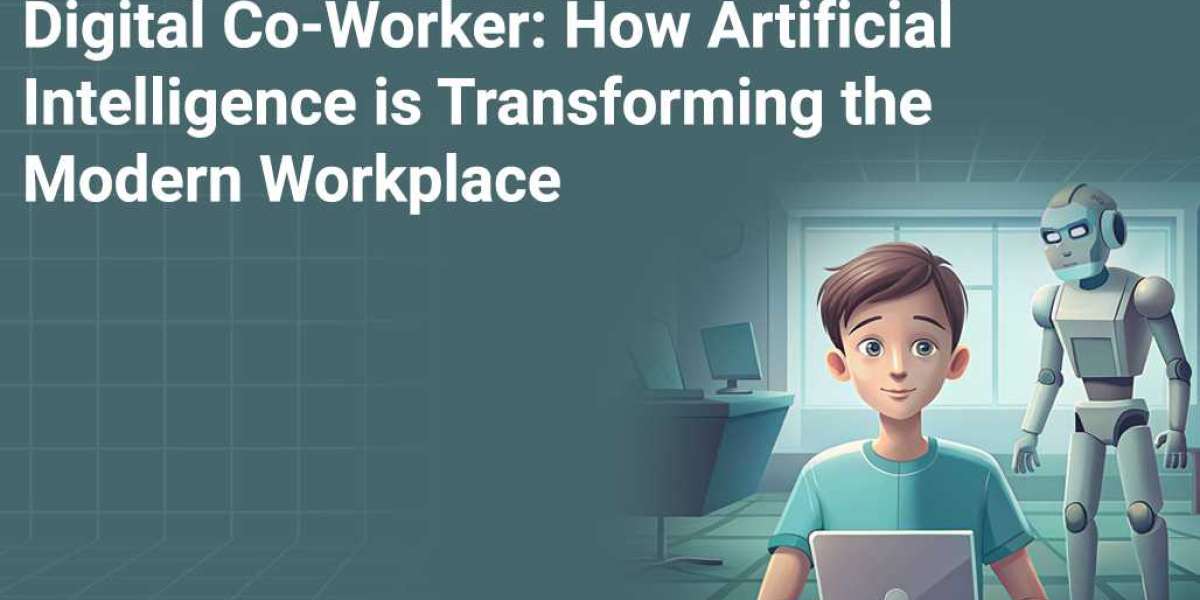Artificial intelligence (AI) is not a new concept, but it has grown in popularity and strength in recent years as data, computer, and algorithmic breakthroughs have accelerated. AI can currently accomplish activities that were previously thought to be restricted to human intellect, such as facial recognition, natural language interpretation, and creative content generation.
As a result, AI, paired with the capacity of intelligent automation, is increasingly being employed as a digital coworker to augment and supplement human competencies in a variety of sectors and jobs. In this post, we'll look at the advantages, disadvantages, and future implications of working with AI as a coworker.
Benefits of AI as a co-worker
One of the primary advantages of AI as a coworker is its ability to increase human productivity, creativity, and collaboration. For example, AI combined with the connection of an intelligent automation platform can help automate repetitive or mundane processes, such as data entry, invoicing, or scheduling. Allowing human workers to focus on more complicated or strategic tasks. AI can also help analyze massive volumes of data, create insights, and make recommendations, allowing humans to make better decisions and solve issues more quickly. AI can also promote creativity and innovation by offering new perspectives, ideas, or suggestions, as well as improving cooperation and communication among varied teams.
Challenges of AI as a coworker
While AI can provide numerous benefits as a coworker, it also introduces some obstacles or hazards that must be handled or managed. Some of these issues or threats stem from the way people now work. Most employment responsibilities were developed to support a business solution that technology could not perform automatically. People in these professions filled in the gaps between systems by using their reasoning skills to move data between non-communicating systems.
The company must also reassess its strategy and vision to include intelligent automation with AI, as well as define how and where people will be deployed to have the most influence on their consumers and profits. These modifications are frequently far more complex than installing the technological components themselves.
Learning from one another
The complexities of company operations, along with the need for intelligent automation, have fueled the development of AI (artificial intelligence) assistants or AI coworkers.
Unlike typical RPA (robotic process automation)--based chatbots, which are limited to programmed responses, AI coworkers can be educated to think, read, and communicate like humans. Powered by innovative technologies such as NLP (natural language processing), machine learning, deep learning, and generative AI, these AI coworkers complement human teams by gradually learning from each interaction, much like humans.
Consider a large-sized firm with a range of offerings where marketing and sales workflows demand a thorough examination of varied data sources for strategy building. Consider an AI marketing analyst who smoothly automates this process by collecting data from social media platforms, competitor websites, and other sources, conducting SWOT analysis, and offering unbiased opinions.
This automation not only saves time and reduces errors, but also allows for more informed decision-making. When combined with an AI business development executive, this AI-driven method improves efficiency and lead creation, resulting in revenue growth and company success.
Future Trends and Implications
As AI technology advances and improves, it is expected that AI will become more common and important as a coworker in the near and long term. Some of the possible scenarios are:
Human-AI hybrid teams: Human and AI coworkers will establish hybrid teams that capitalize on their respective strengths while compensating for their deficiencies. Human-AI hybrid teams will be able to complete tasks that are beyond the abilities of either humans or AI alone.
Human-AI symbiosis: Human and AI coworkers will have a symbiotic relationship that promotes reciprocal learning and development. Human-AI symbiosis allows human workers to learn new skills or information via AI systems, and vice versa.
Human-AI competition: Human and AI coworkers will compete for job chances and rewards. Human-AI competition will incentivize human workers to enhance their abilities or performance, but it will also make it difficult to preserve collaboration or harmony among coworkers.
How are Executives Preparing for AI in the Future Workplace?
Many executives are sure that AI and machine learning will continue to drive collaborative work and working practices forward, boosting everyday working life across a wide range of applications and industries.
In conjunction with Cisco, our AI-powered collaboration solutions are already boosting consumer and employee experiences. We spoke with 1,500 business and IT executives from worldwide organizations in ten countries about their future strategies, changing worker patterns, and the impact of emerging technology.
AI, backed by intelligent automation, is altering the workplace by converting it into a coworker capable of enhancing human talents across multiple domains and jobs. However, working with AI as a coworker presents several issues that must be solved as the technology is implemented. Furthermore, working with AI as a coworker will have far-reaching ramifications for the future of work and society.
As a result, human workers, organizations, and society must embrace the potential and challenges of working with AI as a coworker, as well as prepare for the inevitable changes and transitions that, in my opinion, have already begun.







